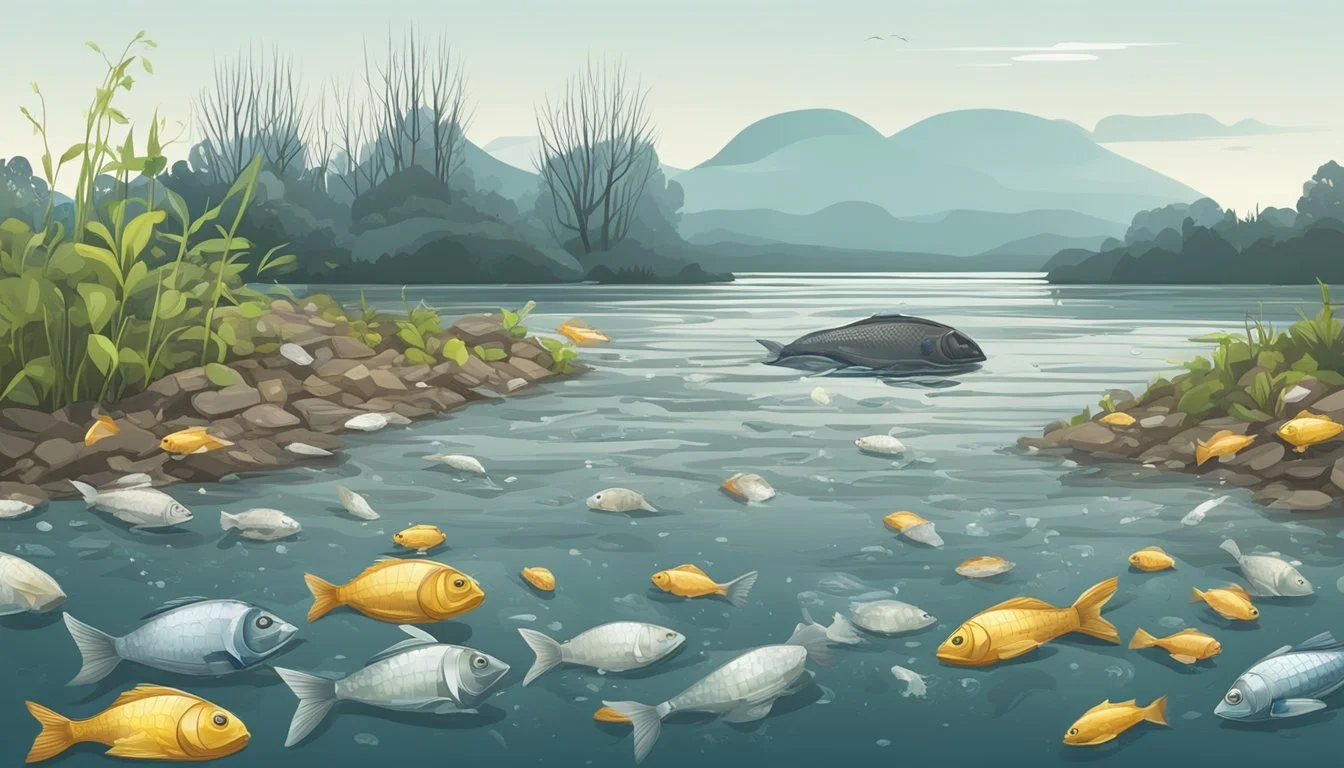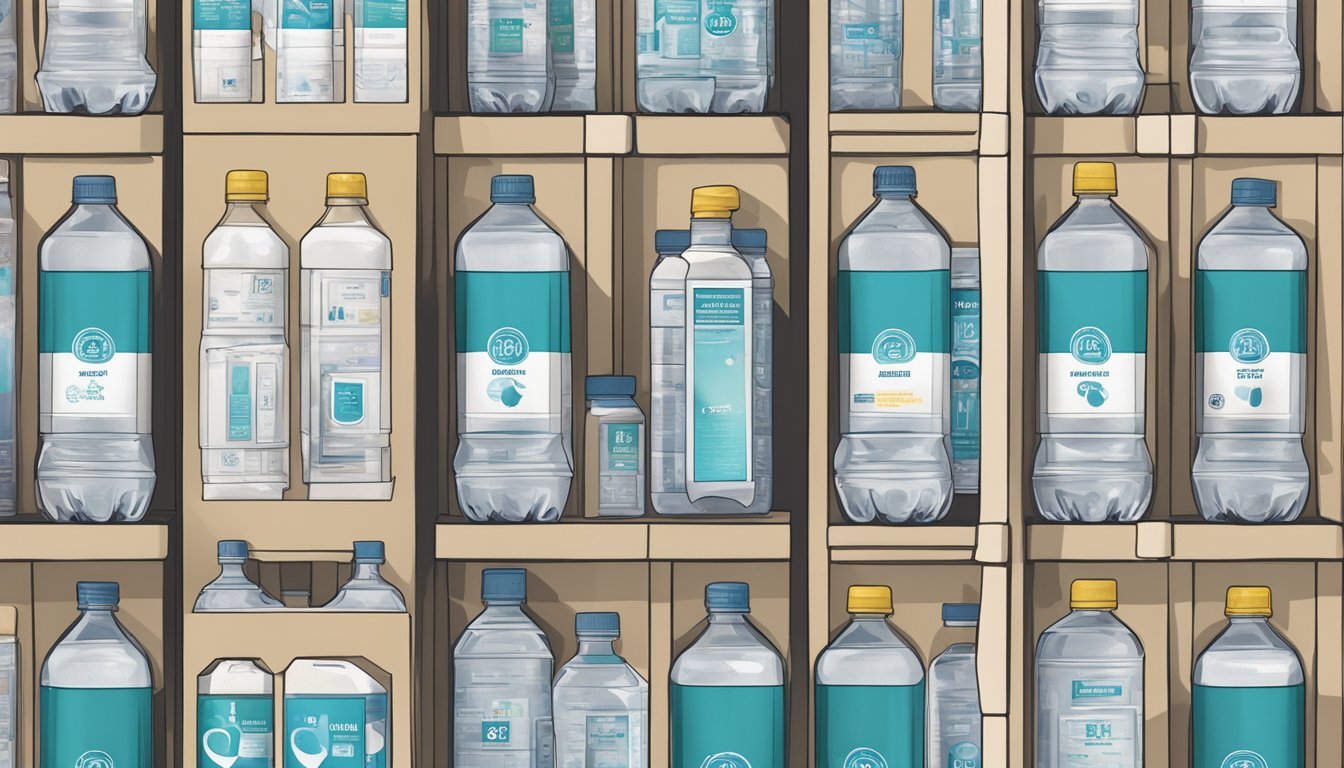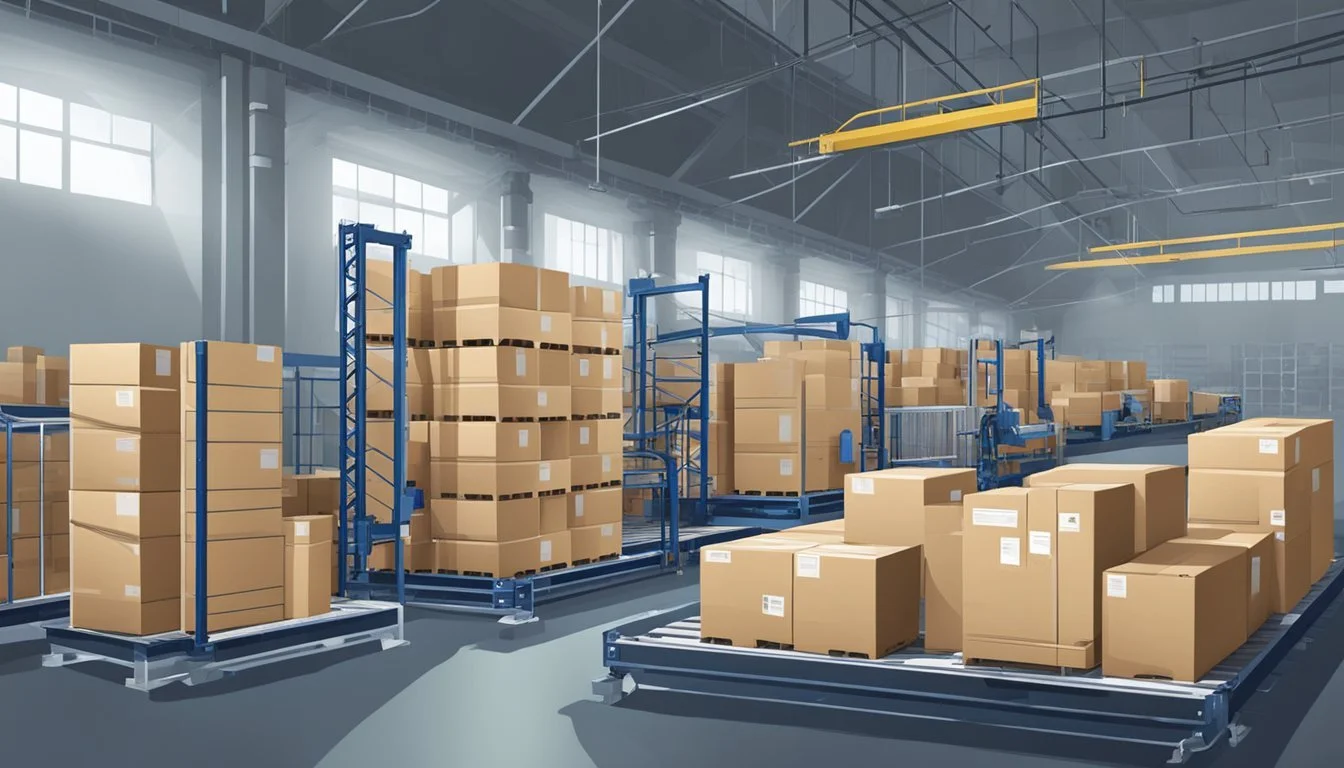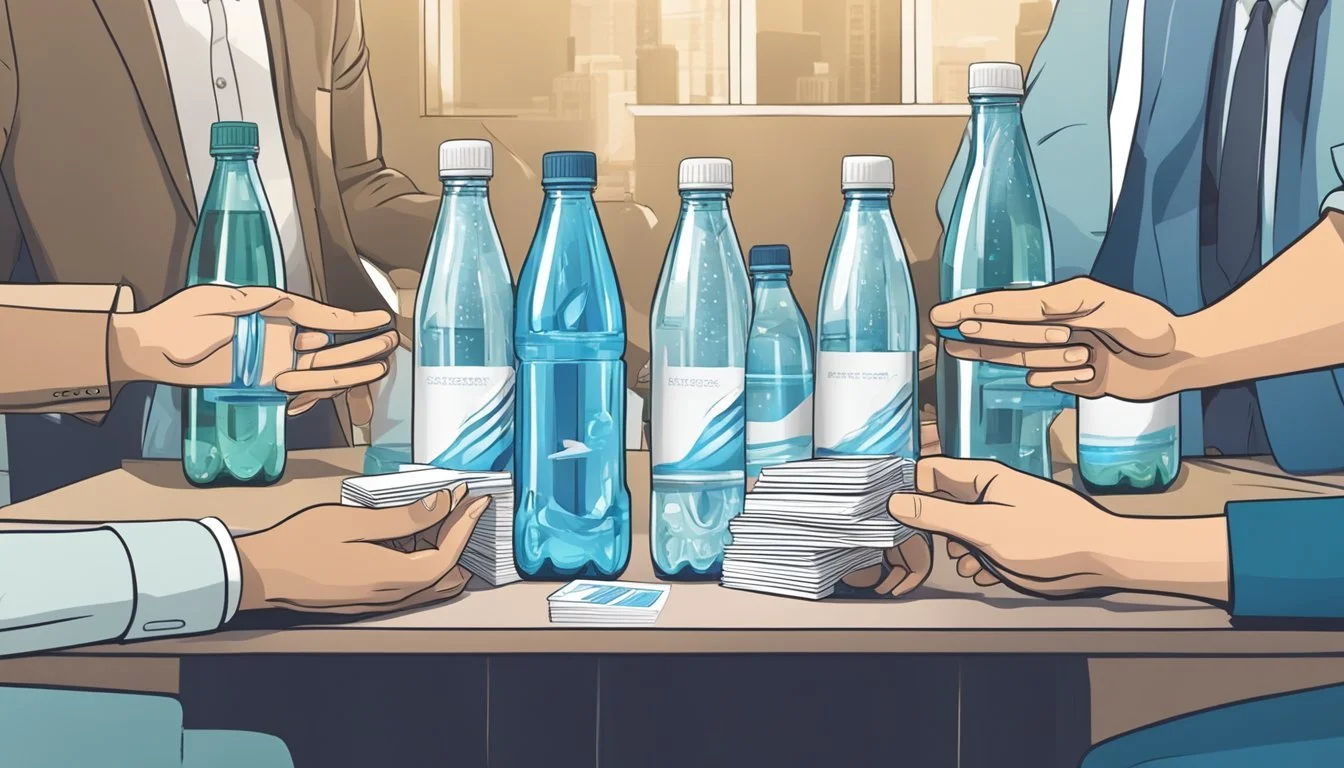Is Boxed the Best Bottled Water?
Eco-Friendly Alternative to Plastic Bottles
Boxed water is gaining popularity as a more sustainable alternative to traditional plastic bottles. These innovative cartons are made from 92% plant-based materials and are 100% recyclable. Boxed water provides a convenient way to stay hydrated while reducing environmental impact compared to single-use plastic bottles.
The packaging for boxed water is designed to be both functional and eco-friendly. The cartons are typically made from renewable resources like paper from responsibly managed forests. They have a smaller carbon footprint than plastic bottles throughout their lifecycle, from production to disposal.
Several companies now offer boxed water options in various sizes. While the taste is generally comparable to regular bottled water, some consumers report subtle differences between brands. As with any packaged water, it's important to check the source and purification methods used to ensure quality.
The Emergence of Boxed Water
Boxed water emerged as an eco-friendly alternative to plastic bottled water, aiming to reduce environmental impact while maintaining convenience. This innovative packaging solution has gained traction among environmentally conscious consumers and brands.
What Is Boxed Water?
Boxed water is drinking water packaged in paper-based cartons instead of plastic bottles. These cartons typically consist of 74% paper, 1% aluminum, and 25% plastic film. The paper comes from sustainably managed forests, while the thin plastic layer keeps the container waterproof.
Boxed water containers are designed to be recyclable and have a lower carbon footprint compared to traditional plastic bottles. They're lightweight, portable, and maintain the water's freshness and quality.
Boxed Water Vs. Plastic Bottled Water
Boxed water offers several advantages over plastic bottled water. It reduces plastic waste, as the cartons are mostly made from renewable resources. The packaging is more compact and efficient to transport, potentially lowering carbon emissions.
Plastic bottles, in contrast, are derived from fossil fuels and can take hundreds of years to decompose. They contribute significantly to ocean pollution and wildlife harm.
However, boxed water isn't without drawbacks. The mixed materials in the cartons can make recycling more challenging in some areas. Plastic bottles, when properly recycled, can be repurposed more easily.
The Rise of Boxed Water Brands
"Boxed Water Is Better" pioneered the concept in 2009, aiming to disrupt the bottled water industry with a sustainable alternative. Since then, numerous brands have entered the market, each with their own unique approach to eco-friendly packaging.
These companies often emphasize sustainability in their marketing, appealing to environmentally conscious consumers. Many partner with reforestation initiatives or ocean cleanup projects to further their environmental impact.
As awareness of plastic pollution grows, boxed water brands continue to gain market share. They're increasingly found in retail stores, restaurants, and events, offering a convenient and renewable option for hydration on-the-go.
Environmental Impact
Boxed water offers potential environmental benefits compared to traditional plastic bottles. The packaging choices for water have significant implications for sustainability and carbon emissions.
Effects of Plastic Bottles on the Environment
Plastic water bottles contribute substantially to pollution and waste. Over 1 million plastic bottles are sold every minute globally, with many ending up in landfills or oceans. These bottles take hundreds of years to decompose.
Plastic production and transportation also generate greenhouse gas emissions. The manufacturing process for plastic bottles requires petroleum and natural gas, further depleting non-renewable resources.
Marine ecosystems suffer as animals mistake plastic debris for food. Microplastics have been found in marine life and even tap water, raising health concerns.
The Sustainability of Carton Packaging
Carton packaging for water offers improved sustainability over plastic bottles. These containers are made primarily from paper, a renewable resource derived from trees.
Many carton manufacturers use responsibly sourced paper from certified forests. The packaging is recyclable and biodegradable. Cartons are lightweight, reducing transportation emissions.
Some drawbacks exist. The inner plastic lining and cap are not easily recyclable. Not all recycling facilities can process cartons effectively.
Reducing Carbon Footprint With Boxed Water
Boxed water can significantly reduce carbon emissions compared to plastic bottles. The production process for cartons generates fewer greenhouse gases.
Boxed water is more efficiently transported due to its shape, allowing more units per shipment. This lowers fuel consumption and associated emissions.
Studies indicate boxed water has a 36-76% lower carbon footprint than plastic bottles. The exact reduction depends on factors like transportation distance and recycling rates.
Consumers can further decrease environmental impact by refilling and reusing boxed water containers multiple times before recycling.
Health and Safety
Boxed bottled water raises important considerations around purity and potential contaminants. The packaging and sourcing methods impact both the quality of the water and environmental factors.
Purity of Boxed Water
Boxed water typically undergoes purification processes like reverse osmosis or distillation. These methods remove many contaminants found in tap water. Most brands use municipal water sources and further filter it. The cardboard packaging helps preserve water quality by blocking light and reducing plastic leaching. Some companies use spring or mineral water sources. Testing shows boxed water generally meets or exceeds purity standards for tap water.
Concerns Over Microplastics in Bottled Water
Recent studies have detected microplastics in many bottled water brands. These tiny plastic particles may come from the packaging or manufacturing process. Boxed water reduces but doesn't eliminate this risk. The long-term health effects of ingesting microplastics remain unclear. Some experts recommend filtered tap water as an alternative with potentially fewer microplastics. Consumers can check company water quality reports for more details on purity and testing.
Product Options and Availability
Boxed water offers a range of sizes, flavors, and purchasing options to suit different consumer needs and preferences. Manufacturers have expanded their product lines to provide more choices in this eco-friendly water packaging segment.
Sizes and Varieties of Boxed Water
Boxed water comes in various sizes to accommodate different usage scenarios. Common options include 8.4 fl oz (250 ml) mini cartons for on-the-go hydration, 11.2 ounce boxes for a quick drink, and 16.9 fl oz (500 ml) containers for standard single-serve portions.
Larger formats are also available, such as 1.0 liter boxes and 33.8 fl oz (1 liter) cartons for households or events. Some brands offer multi-packs, typically in 12 or 24 count cases, providing convenience for bulk purchases.
Flavored Boxed Water Choices
While plain purified water remains the core offering, flavored options have emerged to cater to diverse tastes. Popular flavors include lemon and grapefruit, providing a hint of fruit essence without added sugars or calories.
These flavored varieties use natural ingredients to infuse subtle tastes, appealing to consumers seeking alternatives to sugary beverages. Some brands also offer fruit-essence waters designed to mimic the appeal of juice boxes for children while maintaining the benefits of pure hydration.
Finding Boxed Water in Stores and Online
Boxed water has gained shelf space in many retail locations. Consumers can find these products in grocery stores, convenience stores, and health food markets. Some big-box retailers like Walmart now stock boxed water options alongside traditional bottled waters.
For those preferring online shopping, e-commerce platforms offer a wide selection of boxed water brands and varieties. Many manufacturers also sell directly through their websites. Online orders typically arrive within 3-7 days, depending on the shipping method chosen.
Specialty health stores and eco-friendly shops often feature a curated selection of boxed water products, catering to environmentally conscious consumers.
Marketing and Consumer Awareness
Effective marketing strategies and consumer awareness campaigns play crucial roles in the boxed bottled water industry. These efforts shape brand perception, highlight sustainability initiatives, and address environmental concerns.
The Role of Branding in Consumer Choice
Branding significantly influences consumer decisions in the boxed bottled water market. Companies like Boxed Water™ leverage distinctive packaging and messaging to stand out on store shelves. Their minimalist design and "shop all" approach appeal to environmentally conscious consumers.
Brands emphasize purity, sustainability, and convenience to attract health-focused buyers. Many highlight their water sources or filtration processes as unique selling points. Some companies create lifestyle-oriented branding, positioning their products as fashionable accessories.
Effective branding also includes clear communication of eco-friendly practices. This approach resonates with consumers seeking alternatives to traditional plastic bottles.
Advertising and the Commitment to Sustainability
Advertising campaigns for boxed bottled water often focus on sustainability commitments. Companies showcase their use of plant-based cartons and renewable materials in packaging. These efforts aim to differentiate their products from plastic bottled alternatives.
Marketing strategies highlight recycling programs and partnerships with environmental organizations. Brands may feature statistics on reduced carbon footprints or trees planted through conservation initiatives.
Social media campaigns encourage consumer participation in sustainability efforts. This engagement helps build brand loyalty and reinforces the eco-friendly image of boxed water products.
Addressing Greenwashing Concerns
As sustainability claims become more prevalent, consumers grow increasingly skeptical of potential greenwashing. Boxed water companies must provide transparent information about their environmental impact to maintain trust.
Brands are responding by offering detailed lifecycle analyses of their products. They disclose sourcing practices, manufacturing processes, and end-of-life recycling options. Third-party certifications help validate sustainability claims and reassure consumers.
Some companies address concerns by educating consumers on proper recycling methods for their packaging. They also invest in research to improve the recyclability and compostability of their cartons.
Recycling and Reusability
Boxed water cartons offer unique recycling opportunities and challenges. Their composition impacts recycling processes, while reusable alternatives provide eco-friendly options for consumers. The beverage industry continues to evolve its recycling practices to meet sustainability goals.
Carton Recycling Processes
Boxed water cartons typically consist of 74% paper, 1% aluminum, and 25% plastic. This multi-layer composition requires specialized recycling facilities. Paper fibers are separated and repurposed into new paper products. The remaining plastic and aluminum undergo further processing.
Many recycling centers now accept these cartons, but availability varies by location. Consumers should check local guidelines for proper disposal. Some areas may require cartons to be rinsed and flattened before recycling.
Carton recycling rates have room for improvement. In 2020, the combined bottle recycling rate, including various polymers, was 27.2%, a slight decrease from 28.7% in 2019.
Encouraging the Use of Reusable Water Bottles
Reusable water bottles offer a more sustainable alternative to single-use containers. These bottles come in various materials, such as stainless steel, glass, and durable plastics.
Benefits of reusable bottles include:
Reduced waste generation
Lower carbon footprint
Cost savings for consumers
Potential health benefits from BPA-free materials
Many organizations and businesses now promote reusable bottles through incentives and refill stations. Some cities have installed public water fountains designed for bottle refills.
Education plays a crucial role in encouraging adoption. Campaigns highlight the environmental impact of single-use containers and the benefits of reusable options.
Future of Recycling in the Beverage Industry
The beverage industry is exploring innovative recycling solutions. Companies are investing in new technologies to improve recycling efficiency and expand the range of recyclable materials.
Emerging trends include:
Chemical recycling processes for mixed plastics
Increased use of recycled content in packaging
Development of easily separable multi-layer materials
Biodegradable alternatives for certain components
Collaboration between manufacturers, recycling facilities, and government agencies is key to advancing recycling capabilities. Some companies are adopting closed-loop systems, aiming to recycle their own packaging.
Extended producer responsibility programs are gaining traction, holding manufacturers accountable for the entire lifecycle of their packaging. These initiatives may drive further innovation in recyclable and reusable packaging designs.
Economic Aspects
Boxed bottled water offers unique economic considerations compared to traditional plastic bottled water. The cost structure, market potential, and pricing strategies differ significantly in this emerging eco-friendly segment.
Cost Comparison With Plastic Bottled Water
Boxed water typically costs more to produce than plastic bottled water due to specialized packaging materials and processes. A case of 24 boxed water cartons often retails for $24-$30, while a similar case of plastic bottles may cost $15-$20.
However, economies of scale are improving as demand grows. Some companies offer reduced prices for bulk purchases or subscriptions. Free shipping is sometimes available for larger orders, helping offset the higher unit cost.
Material costs for boxed water are more stable than plastic, which fluctuates with oil prices. This can provide more predictable pricing for consumers and retailers in the long term.
Profitability and the Eco-friendly Product Market
The eco-friendly product market has seen significant growth, with consumers willing to pay premium prices for sustainable options. Boxed water companies can command higher profit margins compared to traditional bottled water brands.
Market research shows 73% of millennials are willing to pay more for sustainable products. This demographic represents a lucrative target market for boxed water brands.
Investors are increasingly interested in sustainable product companies. Several boxed water startups have secured millions in venture capital funding, indicating strong profit potential in this sector.
Incentives and Pricing Strategies
Boxed water companies employ various pricing strategies to attract customers and compete with plastic bottled water. Many offer discounts for recurring subscriptions, encouraging long-term customer loyalty.
Some brands partner with retailers to offer in-store promotions or bundle deals. Others focus on e-commerce, using dynamic pricing algorithms to optimize sales and profitability.
Government incentives for eco-friendly packaging can help reduce production costs. Tax credits or grants for sustainable manufacturing processes benefit boxed water companies, potentially allowing for more competitive pricing.
Seasonal pricing strategies are common, with promotions during summer months or events to drive sales and brand awareness. Social media influencer partnerships often include special discount codes, leveraging digital marketing for sales growth.
Partnerships and Collaborations
Boxed water companies have formed strategic alliances to expand their reach and impact. These partnerships focus on sustainability, distribution, and environmental stewardship.
Corporate Responsibility and Environmental Stewardship
Boxed water brands actively collaborate with environmental organizations to promote sustainability. Boxed Water Is Better partners with the National Forest Foundation, pledging to plant trees for every social media post featuring their products.
This initiative has led to the planting of over 1 million trees in national forests. The company also works with Ocean Blue Project to remove plastic from waterways.
Cirro Water partners with Water.org, contributing a portion of sales to provide clean water access in developing countries. These partnerships demonstrate a commitment to global water issues beyond their product offerings.
Strategic Alliances in Distribution
To increase availability of boxed water, companies have formed partnerships with major retailers and airlines. Boxed Water Is Better secured a deal with Alaska Airlines to offer their product on flights.
This collaboration provides passengers with a sustainable alternative to plastic bottles during air travel. The brand has also partnered with Target and Whole Foods to expand retail distribution.
Just Water, another boxed water brand, has formed alliances with music festivals and events to promote their product as an eco-friendly option for attendees. These partnerships help increase visibility and accessibility of boxed water options.
Notable Partnerships for Sustainability
Boxed water companies have joined forces with organizations focused on environmental research and conservation. Flow Water collaborates with the University of Toronto's Water Institute to study water sustainability.
Just Water partners with the Rainforest Alliance to ensure responsible sourcing of their packaging materials. Boxed Water Is Better works with 1% for the Planet, donating a portion of sales to environmental causes.
These partnerships extend beyond marketing, contributing to scientific research and conservation efforts. By aligning with respected organizations, boxed water brands strengthen their credibility in the sustainability space.
Consumer Insight
Boxed bottled water has seen a surge in popularity as consumers become more environmentally conscious. Buyers are increasingly considering factors like sustainability, taste, and convenience when choosing their water packaging options.
Customer Preferences and Trends
Eco-friendly packaging is a top priority for many consumers. Boxed water brands have capitalized on this trend by offering recyclable and biodegradable options. Taste remains a crucial factor, with buyers expecting crisp, clean flavors from boxed water.
Convenience plays a significant role in purchasing decisions. Lightweight, easily portable boxes appeal to on-the-go consumers. Many buyers appreciate the stackable nature of boxed water, which saves space in refrigerators and pantries.
Health-conscious individuals often opt for boxed water due to concerns about chemicals leaching from plastic bottles. Some boxed water brands highlight their water sources and filtration processes to appeal to this demographic.
Testimonials and Consumer Success Stories
"I switched to boxed water for environmental reasons and was pleasantly surprised by the taste," says Sarah, a regular boxed water consumer. Many users report feeling good about their choice to reduce plastic waste.
Athletes praise the convenience of boxed water during workouts. "The boxes are easy to grip and don't slip out of my hands when I'm sweating," notes personal trainer Mark.
Travelers appreciate the durability of boxed water. "I can toss it in my bag without worrying about leaks or crushing," shares frequent flyer Emma.
Parents often choose boxed water for their children's lunches. "The boxes are safer than glass and more eco-friendly than plastic bottles," explains mom of three, Lisa.
The Role of Social Proof in Purchasing Decisions
Social media influencers have played a significant role in popularizing boxed water. Many share images of themselves with boxed water brands, emphasizing the eco-friendly aspect.
Celebrity endorsements have boosted the profile of certain boxed water brands. These partnerships often highlight the importance of sustainability and environmental responsibility.
Peer recommendations carry substantial weight. Consumers are more likely to try boxed water when friends or family members vouch for its quality and taste.
Online reviews and ratings significantly impact purchasing decisions. Positive feedback about taste, packaging durability, and environmental impact can sway potential buyers.






